Health Equity
News
LDI SUMR Program Rolls Into 21st Year Despite COVID-19 Disruptions
A Summer Pipeline Initiative Aimed at Racial Disparities in Academic Research
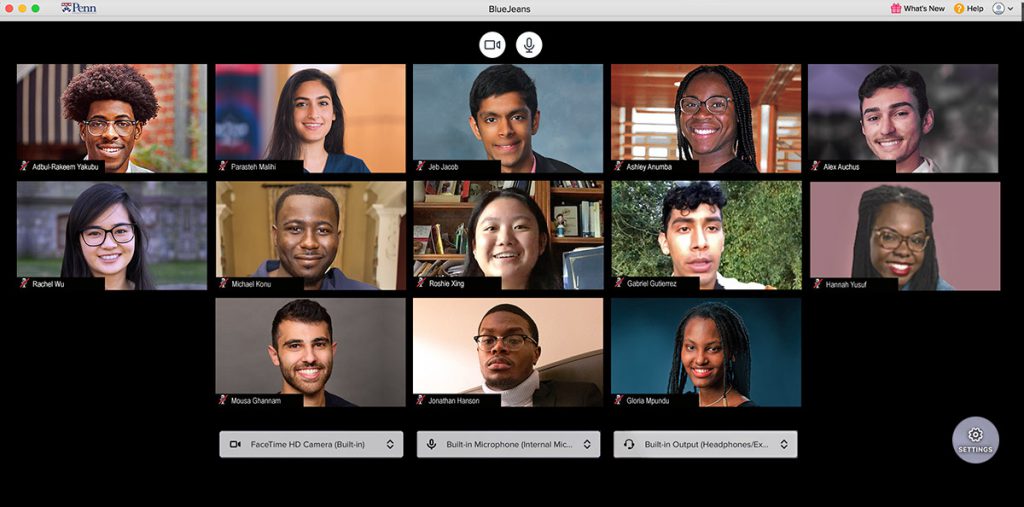
For the 21st year, and amid the unique circumstances of the COVID-19 lockdown, the Leonard Davis Institute of Health Economics (LDI) has convened its annual three-month Summer Undergraduate Minority Research (SUMR) Scholars program aimed at attracting students from underrepresented minority groups to the field of health services research.
In June, SUMR welcomed 13 new health care-focused scholars who are spending their summer virtually immersed in the world of the University of Pennsylvania’s research community. During the regular school year, the students are involved in a variety of studies including Psychology, Mathematical Economics, Health Policy & Law, Nursing Science, and at the Penn School of Dental Medicine.
We’ve all been thinking a lot about racial justice, and being a SUMR mentor is one thing I can do to help make progress toward equality in academia.
Holly Fernandez Lynch, JD, MBE
19 Penn faculty mentors
The twelve-week SUMR curriculum pairs each student with at least one faculty mentor and that mentor’s ongoing research project. The SUMR concept is to engage young scholars in real research activities rather than classroom simulations. This year, they continue to work on such projects under the direction of 19 faculty mentors from Penn’s Perelman School of Medicine, The Wharton School of Business, the School of Arts & Science, and the School of Nursing. Simultaneously, they attend an intense schedules of lectures and semninars by some of Penn’s and the country’s top health care experts.
SUMR — an initiative created to help reduce racial inequities in the health care professions — occurs this year at the intersection of two extraordinary national crises. The first is the coronavirus pandemic that is wildly disrupting and transforming health care; the second is a populist uprising demanding a national reckoning with the structural racism that has characterized U.S. society for 400 years. Both issues weighed heavily on the minds of mentors and scholars.
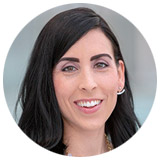
“We’ve all been thinking a lot about racial justice, and being a SUMR mentor is one thing I can do to help make progress toward equality in academia,” said SUMR mentor Holly Fernandez Lynch, JD, MBE, an Assistant Professor of Medical Ethics and Health Policy at the Perelman School and LDI Senior Fellow. In 2002, Lynch was herself a SUMR Scholar.
Mentor Jessica Dine, MD, Associate Dean of Faculty Development at the Perelman School and LDI Senior Fellow, said, “I absolutely think this program is ‘worth’ it even when we have to conduct it virtually. These kinds of programs are so important until systematic racism is abolished.”
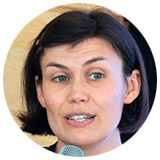
“Empowering students who are Black or underrepresented in research, and medicine more broadly, is a primary goal of mine as a SUMR mentor,” said long-time SUMR mentor, Joanna Lee Hart, MD, MSHP, an Assistant Professor of Medicine at the Perelman School and LDI Senior Fellow.
“This summer,” she continued, “COVID-19 and the deaths of George Floyd and other Black individuals have put on full display the discrimination and racism that exist within our institutions. I take part in the SUMR program as a small part of my own ongoing efforts to support talented students who face these barriers to their success.”
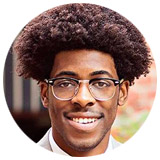
SUMR Scholar Abdul-Rakeem Yakubu noted, “The most satisfying part of SUMR, especially during this period of heightened racial tension, is hearing from many minority professionals about the struggles they encountered on their higher education paths and/or in their careers. It’s very inspiring and helpful to hear how they navigated these spaces and handled all the different injustices they faced.” Yakubu is majoring in Mathematical Biology at Penn’s School of Arts & Science.
“In this time of the pandemic,” said SUMR Scholar Rachel Wu, who is majoring in Computational Biology at Arts & Science, “it’s more important than ever to get more exposure to health services research to critically analyze the ways that our system can be improved during times of great strain. What we’ve been learning in SUMR is more applicable and relevant than ever to identifying and communicating disparities in the system.”
Sponsored by LDI and The Wharton School’s Health Care Management Department, the three-month SUMR program runs from the first week of June into August, and usually brings students from universities across the country to campus. However, in the face of the lockdowns, social distancing and other COVID-related disruptions this year, it has only accepted students from Penn and has suspended in-person activities in favor of video conferencing.
One goal of the program is to be a pipeline for the development of more minority academic researchers capable of bringing broader cultural sensitivities to the work of producing evidence-based findings that underpin national health care policies and practices.
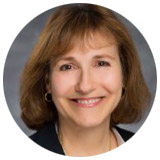
“One of the most exciting things about this job,” said Joanne Levy, MBA, who founded the SUMR program 21 years ago, “is to watch bright young minds come into the program and be changed by the process in ways that enable them to realize that THEY can actually be part of this; that they can potentially have an influence on health policies.”
“This year, at the same time it has scrambled everything, the pandemic is changing health care delivery in many ways likely to alter the profession’s future. Our scholars are directly involved in the research and discussions about what that means. They come to us at a very sad, but historic and instructive moment for students in health care,” said Levy, who, along with being SUMR Director, is also Director of Student Initiatives at LDI, and Associate Director of the Wharton School’s Health Care Management and Economics PhD Program.
SUMR research projects this year range from the study of the Philadelphia neighborhood characteristics most associated with COVID-19, and the evaluation of the health needs of individuals awaiting criminal court hearings, to investigating disparities in outcomes for newborn babies going through drug withdrawal, and evaluating the links between immigration policy and population health.
As throughout the rest of academia, the SUMR mentors and scholars have mixed feelings about not physically meeting together, and the effectiveness of using online video conferencing all day long.
Creating virtual community
“Our greatest worry at the start was that a ‘community’ would not gel if people only met by video conferencing, but thankfully, that wasn’t so,” said Levy. “We have scholars working together in four teams to write white papers on various aspects of the pandemic and we’ve had some fun events online, like a talent show where people danced, played instruments and exhibited their artworks.”
The scholars have joined their mentors’ research teams and are involved in daily tasks that can be done via video conferencing and document sharing through Google and other software programs.
Some scholar observations on video conferencing
Hanna Yusuf, Penn sophomore majoring in Political Science: “I’m honestly not the biggest fan of the video conferences, and hope that future SUMR participants get an in-person experience. I think the video conference-based activities have made it difficult to connect to other members of my cohort and to be completely engaged with the guest speakers.”
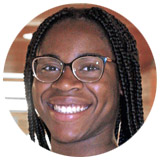
Ashley Anumba, Penn senior majoring in Health & Societies, Health Policy & Law: “Of course, it would be better to actually meet our mentors in person and I thought we might not be able to form relationships and that our personalities would not come through. Surprisingly, that has not been a problem at all, at least for me. Not going to lie though, I do miss the food!”
Roshie Xing, Penn freshman majoring in Mathematical Economics: “There is certainly a loss of the human element from face to face conversation and the feeling that every conversation we have has to be to the point, in consideration of everyone’s schedules. But there’s also been ‘coffee chats’ where I had a wonderful time goofing off with and learning about the student I am paired with.”
Gloria Mpundu, Penn sophomore majoring in Nursing Science: “While interacting with both my peers and mentors in-person would have made the learning environment better, this transformative experience is worth the sacrifice and I am very grateful to everyone who made it happen.”
Faculty observations on remote SUMR mentoring:
Ari Friedman, MD, PhD, Assistant Professor of Emergency Medicine at the Perelman School: “Definitely an obstacle not having ever met in person! We’re doing a lot of BlueJeans and screensharing to facilitate pairs coding, where I look over my SUMR mentee Rachel Wu’s shoulder and we work through coding dilemmas together, and use Google Docs to jointly edit documents.”
“Remote working has already led to daily meetings with my pre- and postdoctoral trainees who also video conference separately with me each day,” said Eileen Lake, PhD, RN, FAAN, a Professor of both Nursing and Health Policy at the School of Nursing and Sociology in the School of Arts & Sciences, and LDI Senior Fellow. “These daily online meetings made incorporating our SUMR intern — Gloria Mpundu — a seamless process because she had a community, schedule, and focus to join.”

“In my case,” said mentor Krzysztof Laudanski, MD, PhD, Assistant Professor of Anesthesia and Critical Care at the Perelman School, and LDI Senior Fellow, “I run a number of innovation teams that have members in Europe and Asia, and we work together through video conferencing all the time. I knew this would be very doable for SUMR. One problem in online mentoring is that you have to be careful not to make everything a business meeting; you have to leave room for socializing and getting to know who your students are. Mentorship by video conferencing does require a bit more effort, but I’ve found that it’s worth it.”
Holly Fernandez Lynch, JD, MBE, Assistant Professor of Medical Ethics and Health Policy at the Perelman School: “It’s different, but we make sure to spend some time just chatting — and also talking about career goals and how to achieve them. There has also been more of an opportunity to have outside speakers present to the group during seminars because no one has to travel. And the fact that all the SUMR scholars are from Penn this year gives me some hope we’ll have the chance to connect in person before graduation!”
Joanna Lee Hart, MD, MSHP, Assistant Professor of Medicine at the Perelman School: “The logistics of this year’s SUMR program have proven to me and others that real relationship building and research participation can occur remotely. Therefore, this may enable students with limited financial resources or other obligations to work remotely and/or in a more flexible manner. This model also lends itself to related part-time programs or follow-on programs for students during the academic year who are not physically located in Philadelphia, but who may benefit from engagement in the rich research environment at Penn.”